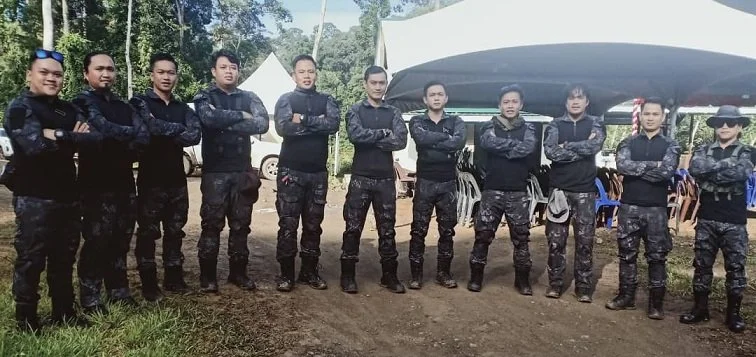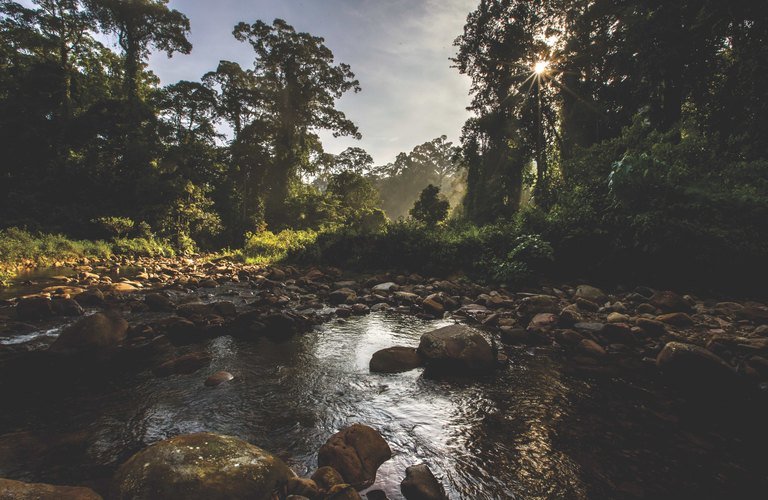GC In the News | DaMaI Initiative boosts protection of Sabah rainforests
Article originally published by The Borneo PostThe Yayasan Sabah rangers who are involved in the DaMaI Initiative.
The Danum-Maliau-Imbak (DaMaI) Initiative on Patrolling (monitoring and enforcement) concluded this year with notable achievements in protecting the Danum Valley, Maliau Basin, and Imbak Canyon Conservation Areas—collectively known as the DaMaI Rainforest Landscape (DRL) of approximately 1.0 million hectares.
The DaMaI Initiative was launched in October 2017 following a Memorandum of Understanding (MoU) between the Sabah Forestry Department (SFD), Sabah Foundation (Yayasan Sabah, YS), and the Sabah Environmental Trust (SET).
A major part of DaMaI’s success came from active, effective patrolling, monitoring, and enforcement.
The initiative was further strengthened with the deployment of the Global Park Defense (GPD) system to combat wildlife poaching and illegal land clearing through an integrated approach.
Among the technologies and training introduced were park-wide communication systems, cellular trail cameras, aerial surveillance, SMART (Spatial Monitoring and Reporting Tool) patrols, the EarthRanger’s Domain Awareness System, and WPS Watch for real-time monitoring and training for rangers and the local communities (for the Honorary Wildlife Warden and Honorary Forest Ranger).
The equipment, systems, and training provided under GPD are funded by Global Conservation of the US, Yayasan Hasanah, and LUSH of Hong Kong.
In addition, continuous support of a dedicated park ranger team, including vehicles focusing on anti-poaching and enforcement efforts in DaMaI’s core conservation zones, was also provided.
Key efforts under GPD include deploying ground and aerial surveillance tools—such as trail cameras and UAV drones—alongside the SMART platform, a suite of software and analytical tools that helps conservationists manage and protect wildlife and natural habitats.
The initiative supports the state government in addressing enforcement and protection gaps across DRL and other landscapes.
Photo ©Paul Hilton
According to SET, major accomplishments under the initiative include the recording of 31,362.71 km in patrol efforts for the year 2024 alone: 28,688.97 km by vehicle, 2,499.43 km on foot, 31.35 km by ATV, and 142.98 km by boat.
Over 170 patrol operations were conducted across 281 days, involving eight agencies. Additionally, 42 camera traps were installed.
Enforcement actions led to the arrest of five poachers and the dismantling of 18 illegal camps and boats.
Global Conservation also supported SET and YS with the purchase of six ATVs and three Nissan trucks to aid patrolling and enforcement.
Dr. Waidi Sinun, Group Manager of Yayasan Sabah’s Conservation and Environmental Management Department (CEMD), said, “Without Global Park support over the last five to six years, we would never have accomplished this level of protection.
“We look forward to continuing our collaboration on park and wildlife protection and scientific work involving endangered species,” he added.
Ongoing efforts are vital to curb poaching and other illegal activities.
The capabilities of the Sabah Forestry Department and Yayasan Sabah enforcement teams could be further enhanced with technologies such as EarthRanger, SMART, and surveillance cameras to support biodiversity monitoring and law enforcement.
Beyond fieldwork, data collected is transformed into actionable insights to inform and engage the public.
To this end, the Environmental Awareness and Sustainable Services (EASS) team hosted an Open Day in December 2024 to highlight DaMaI’s conservation work and its overarching goal of attaining World Heritage Site status.
Consequently, YS and SFD have proposed a three-year MoU extension (2022–2026), which includes the Sabah Wildlife Department (SWD) to further bolster the team’s ability to counter illegal activities in the DRL.
Meanwhile, several Yayasan Sabah rangers shared their experiences working with the DaMaI Initiative.
Saiful Narimin, 36, stationed at the Imbak Canyon Conservation Area, said the initiative has helped raise awareness among local communities in Tongod District about the importance of protecting natural heritage and wildlife.
“My main tasks involved intelligence gathering, border patrolling, and surveying. We usually spent between three to ten days in the forest,” said Saiful, who also serves as an honorary wildlife warden with the Sabah Wildlife Department.
Ali Allbanah Anchun, 31, said he learned a great deal through the initiative, including gaining a deeper understanding of the state’s Wildlife Conservation Enactment.
“Overall, I found it very educational—especially after having the chance to work alongside the Sabah Wildlife Department, Sabah Forestry Department, and WWF-Malaysia, where I learned how to set up roadblocks,” he said.
Ali added that he felt fortunate to encounter wildlife such as Bornean pygmy elephants, bantengs, and deer during patrols in the Maliau Basin Conservation Area.
Another ranger, Ridley Gusibi, 33, said the DaMaI Initiative exposed him to the extent of illegal activity within conservation zones.
“From my experience, it’s quite difficult to control encroachment, especially poachers using ‘jalan tikus’ (hidden trails), as they keep changing their routes into protected areas,” said Ridley, who is based at the Taliwas River Conservation Area in Lahad Datu.









